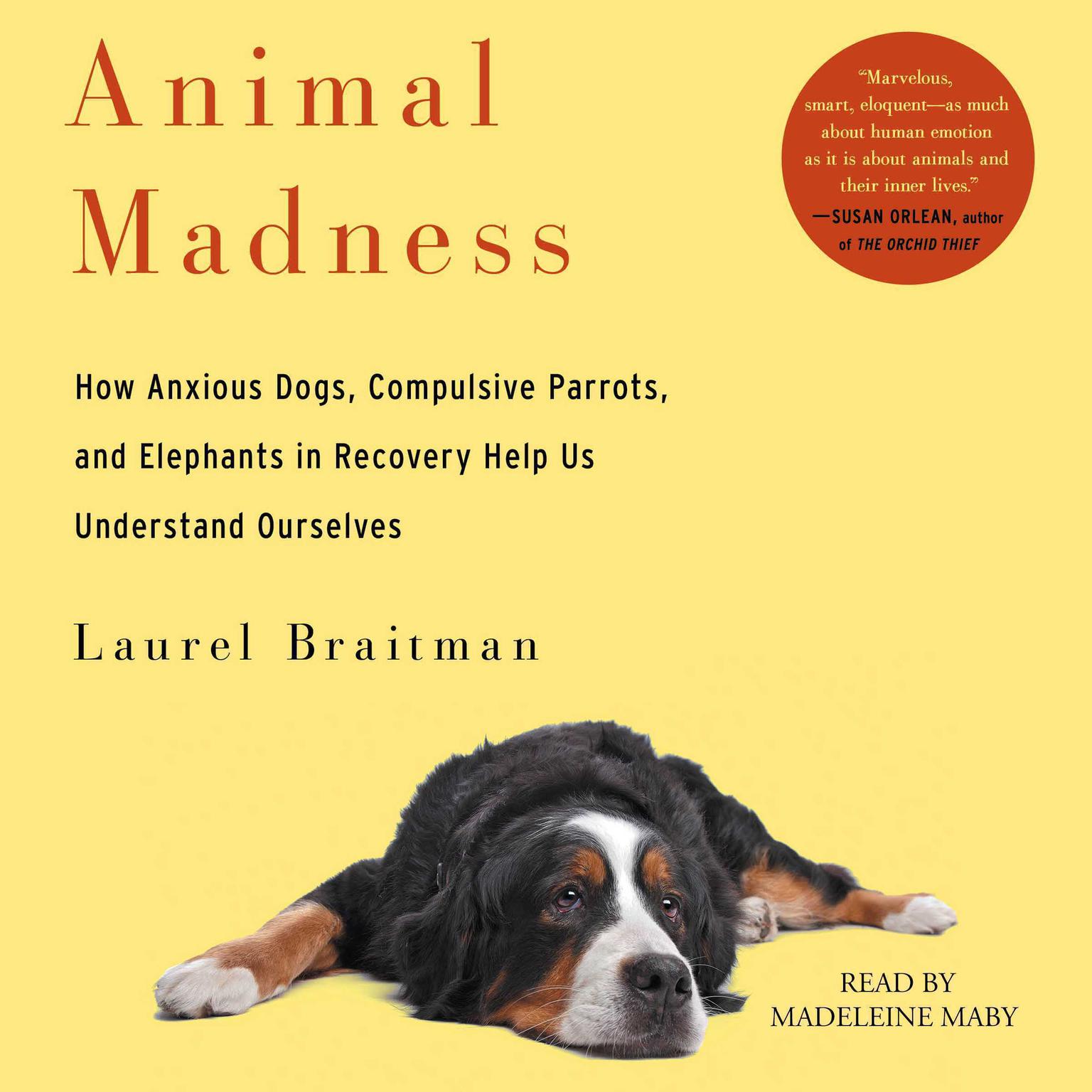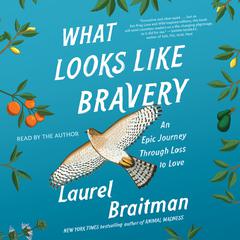 Play Audiobook Sample
Play Audiobook Sample
Animal Madness: How Anxious Dogs, Compulsive Parrots, Gorillas on Drugs, and Elephants in Recovery Help Us Understand Ourselves Audiobook
 Play Audiobook Sample
Play Audiobook Sample
Quick Stats About this Audiobook
Total Audiobook Chapters:
Longest Chapter Length:
Shortest Chapter Length:
Average Chapter Length:
Audiobooks by this Author:
Publisher Description
Charles Darwin conjured his evolutionary ideas by looking at physical differences in Galapagos finches and fancy pigeons (among other species). Alfred Russell Wallace developed similar theories while investigating the geographic distribution of a range of creatures in the Amazon Basin and the Malay Archipelago. Laurel Braitman got her lessons closer to home, learning about evolution by watching her dog. Oliver was a stunningly beautiful and charming Bernese mountain dog. But he was also insane and much to Braitman's horror, he became her guide to the complexities of the disturbed canine mind. For one thing, he was terrified of thunderstorms. But worse than that—and far more confounding—Oliver snapped at flies that only he could see, ate Ziploc bags (including the contents), towels, and cartons of eggs. He suffered such debilitating separation anxiety, was prone to eruptions of aggression, compulsively licked his front paws until they were bare and oozy, and may even have attempted suicide.
Though her experience with Oliver was heartbreaking, his emotional extremes, mental disturbances, and responses to drugs like Valium and Prozac, forced her to acknowledge a form of evolutionary continuity between humans and animals that, as a college biology major and a PhD graduate from MIT, she had never been taught in school. Nonhuman animals lose their minds. And when they do, they do it a lot like us.
Over the past three years Braitman has traveled all over the world in search of disturbed animals and the people who care for them. She also spent months in the archives of the nation’s oldest natural history museums and zoos reading letters, journals, field notes, and books by famed field biologists, naturalists, curators and zookeepers of the nineteenth and twentieth centuries. In Animal Madness she includes the stories of some of the first creatures to come to the United States and very publicly lose their minds—such as Johnny Gorilla, a baby gorilla captured in Gabon and sold to a family that raised him like a human child in London.
After all of the digging in the archives of museums and zoos, the years of travel, the nights spent on boats and in forest huts, the weeks synthesizing scientific literature, and the hours watching, waiting or prowling around the edges of dog parks, lagoons, zoos or amusement parks observing, Braitman discovered that mental illness in animals happens all the time and when it does, it demonstrates that we humans are closely related—and in truly astonishing and heartbreaking ways—to other creatures more than we think. We may look different on the outside, but when it comes to the most ancient parts of our brains, we share more than we might imagine. The ties that bind, in this case, are also the ties that just happen to make us crazy in astonishingly similar ways.
Download and start listening now!
“In this illuminating contribution to the burgeoning field of animal studies, senior TED fellow Braitman suggests that the key to understanding mental illness might lie in our pets. Humans, she reveals, are not the only ones who experience emotional turbulence or mental problems that break daily routine. Bears can endure heartbreak, elephants can form intense social attachments, and gorillas can die from homesickness…Braitman’s delightful balance of humor and poignancy brings each case to life as she draws on her own experience, research, and the theories of Darwin, Descartes, and others…[This book’s] continuous dose of hope should prove medicinal for humans and animals alike.”
— Publishers Weekly
Quotes
-
“This is a marvelous, smart, eloquent book—as much about human emotion as it is about animals and their inner lives. Braitman’s research is fascinating, and she writes with the ease and engagement of a natural storyteller.”
— Susan Orlean, bestselling author of Rin Tin Tin, Saturday Night, and The Orchid Thief -
“Humans aren’t the only animals that suffer from emotional thunderstorms, and author Braitman came to the same conclusion that Charles Darwin arrived at: that nonhuman animals can suffer from mental illnesses that mirror those that humans endure…The wonderful thing she discovered is that it is possible for these animals to heal, a message crystallized by her encounters with ‘friendly’ gray whales who sought out human contact, even though they still bore harpoon scars from the whaling days. Acknowledging mental illness in other animals, and helping them recover, obviously can be a comforting experience.”
— Booklist -
"Animal Madness is the sanest book I've read in a long time. Laurel Braitman irrefutably shows that animals think and feel, and experience the same emotions that we do. To deny this is crazy—which is why this fine book should be required reading for anyone who cares about healing the broken inner lives of both people and animals."
— Sy Montgomery, author of The Good Good Pig
Animal Madness Listener Reviews
Be the first to write a review about this audiobook!
About Laurel Braitman
Laurel Braitman has written for Pop Up magazine, the New Inquiry, Orion, and a variety of other publications. She is a TED Fellow and an affiliate artist at the Headlands Center for the Arts. Laurel lives on a houseboat in Sausalito, California.
About Madeleine Maby
Madeleine Maby is a voice talent and AudioFile Earphones Award—winning narrator.




